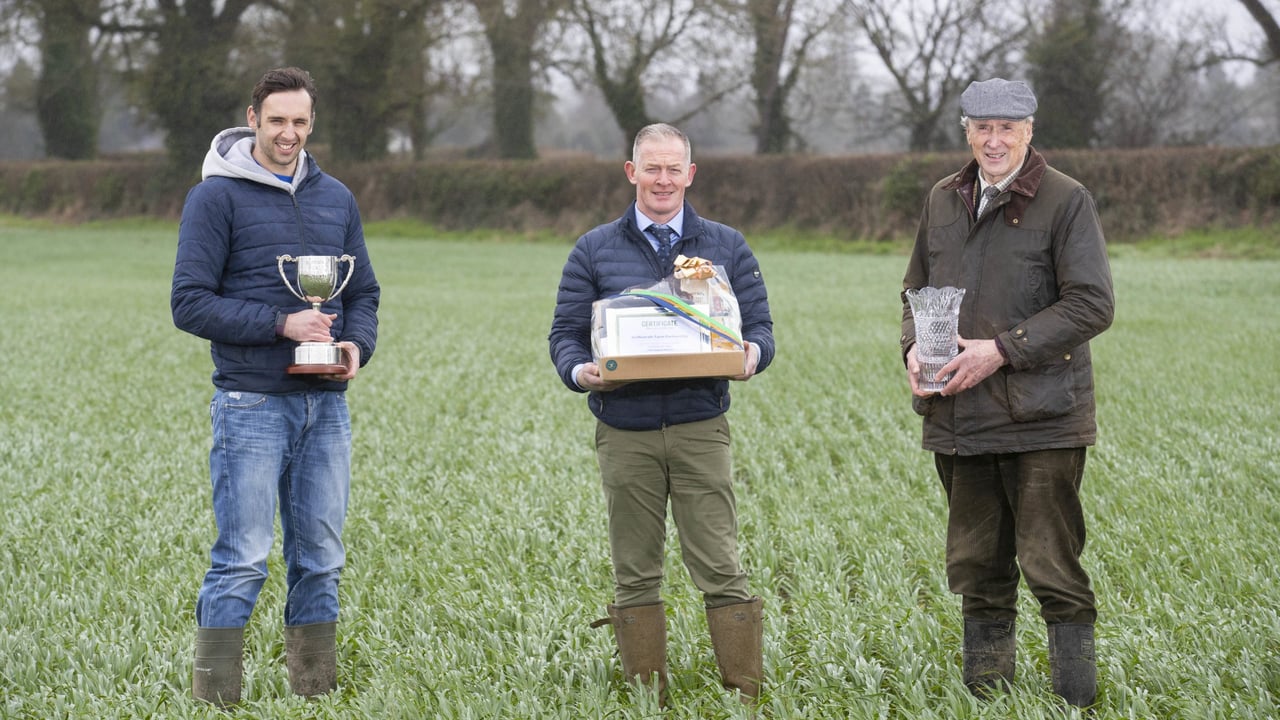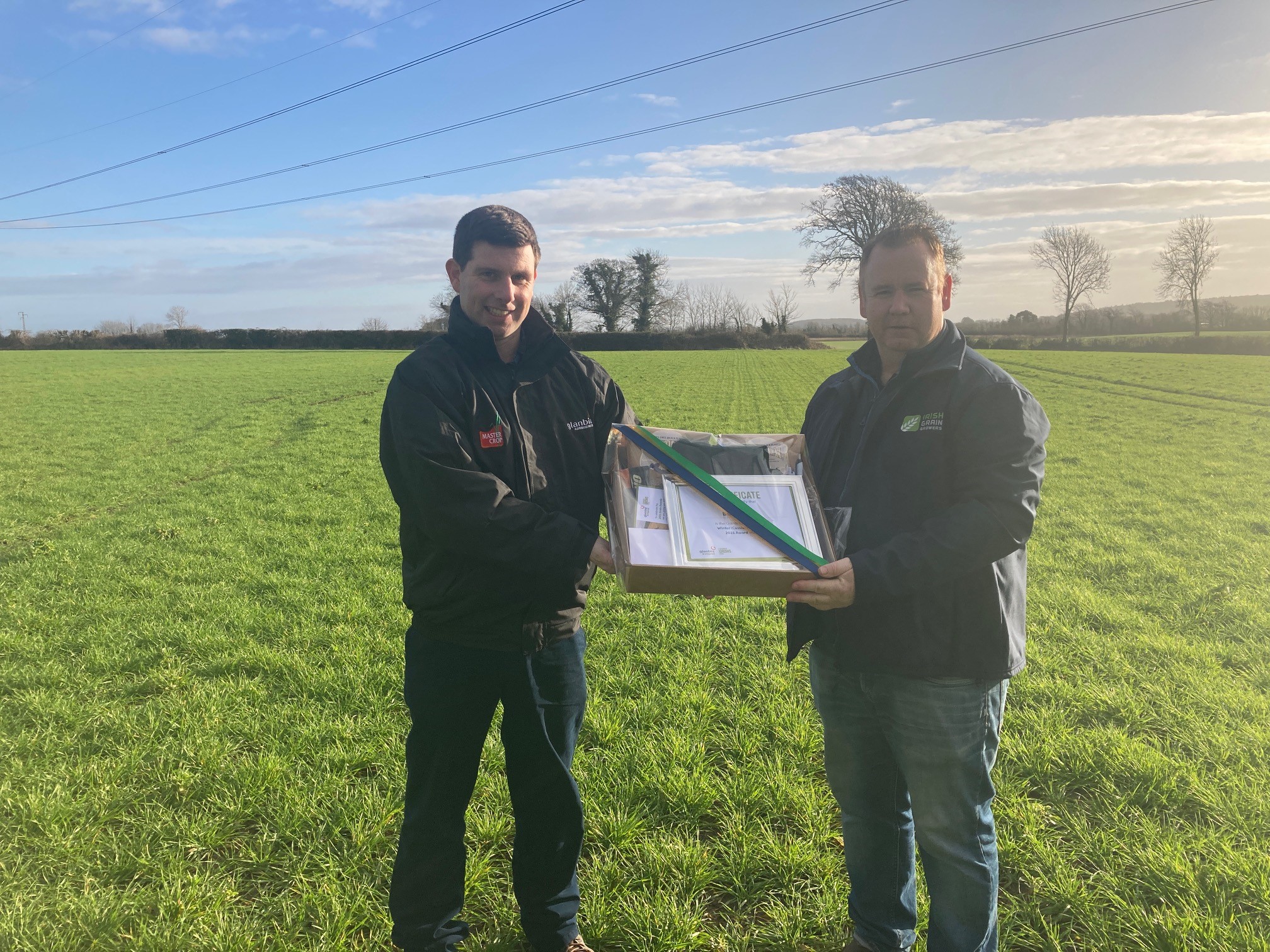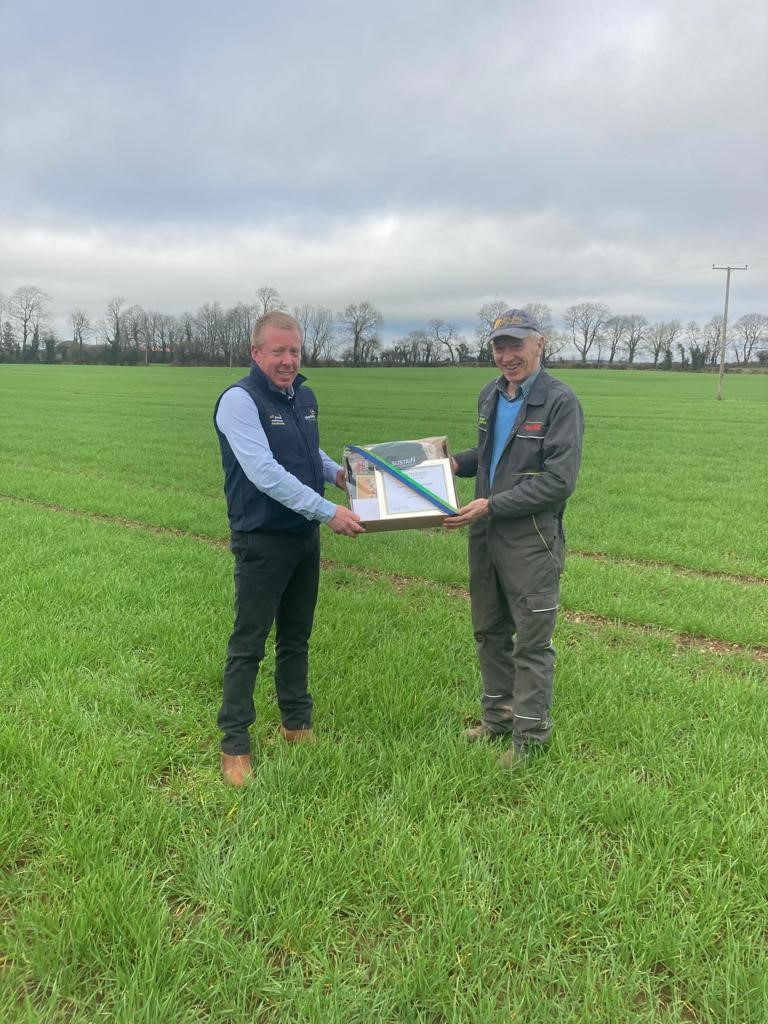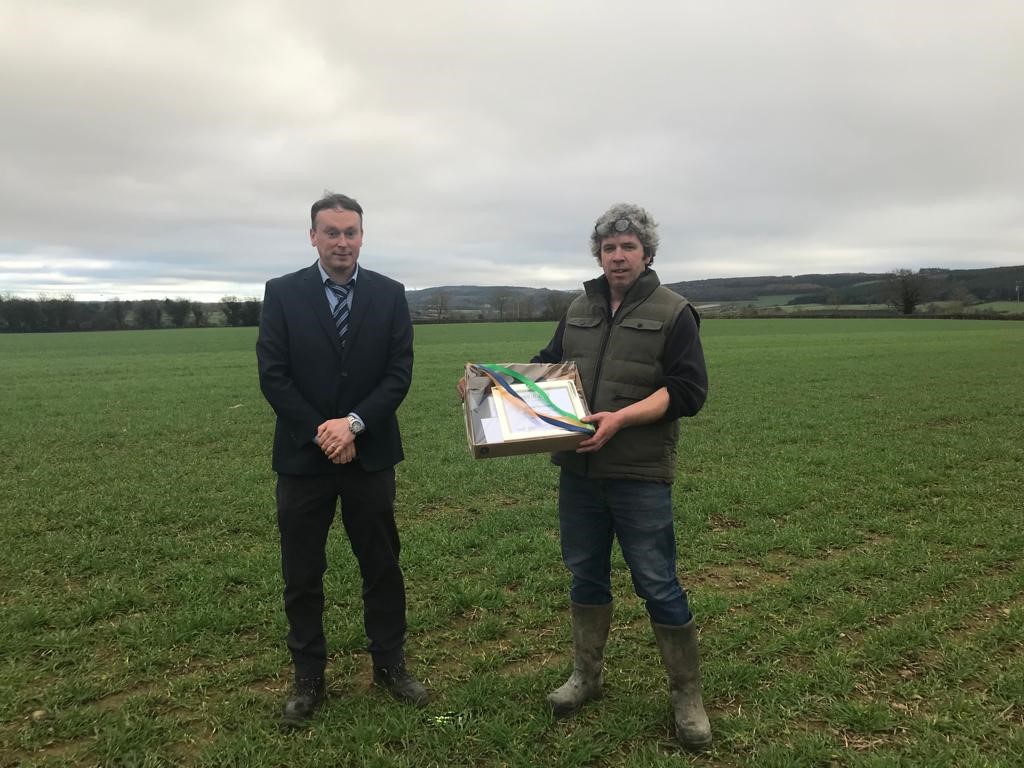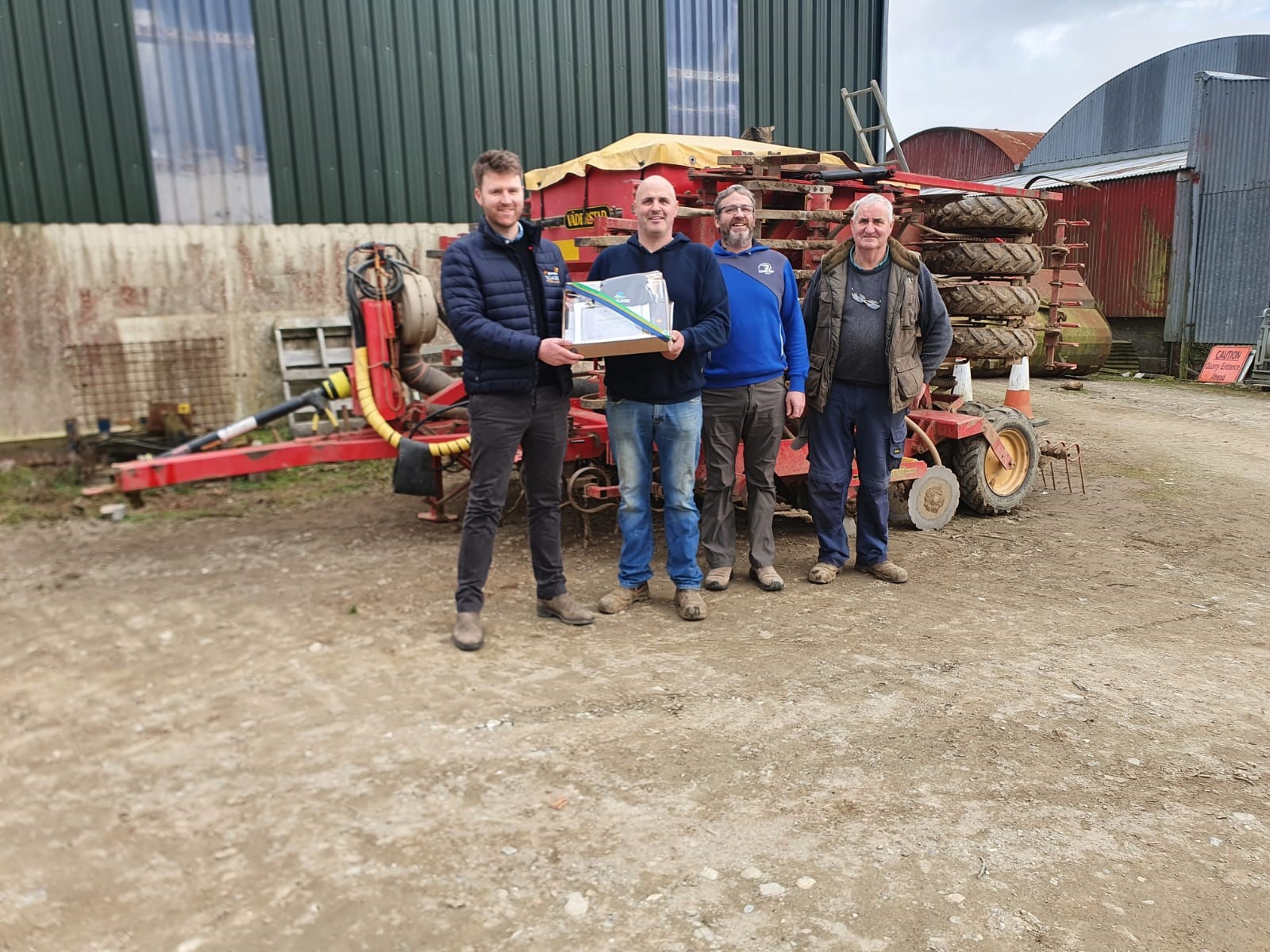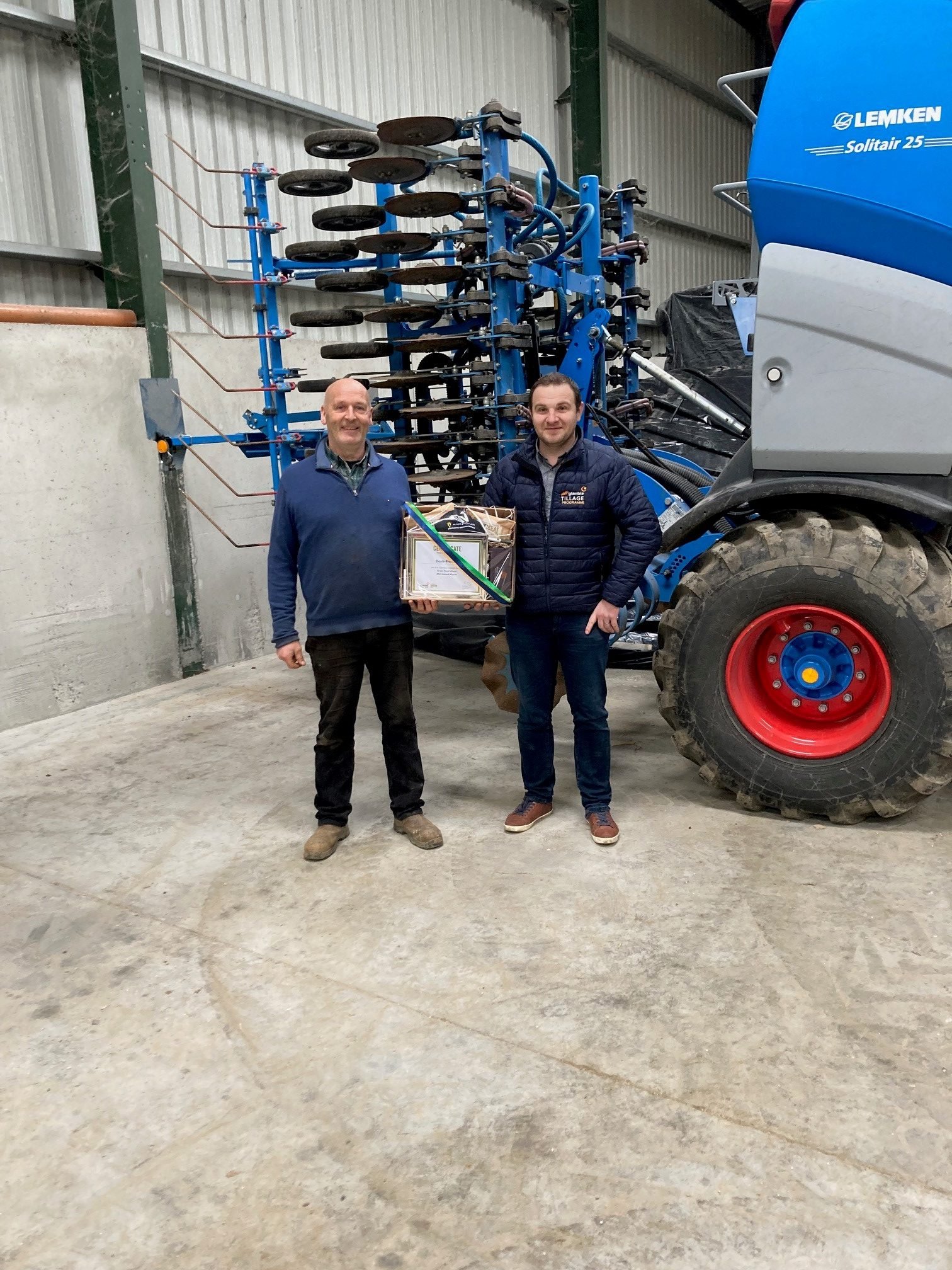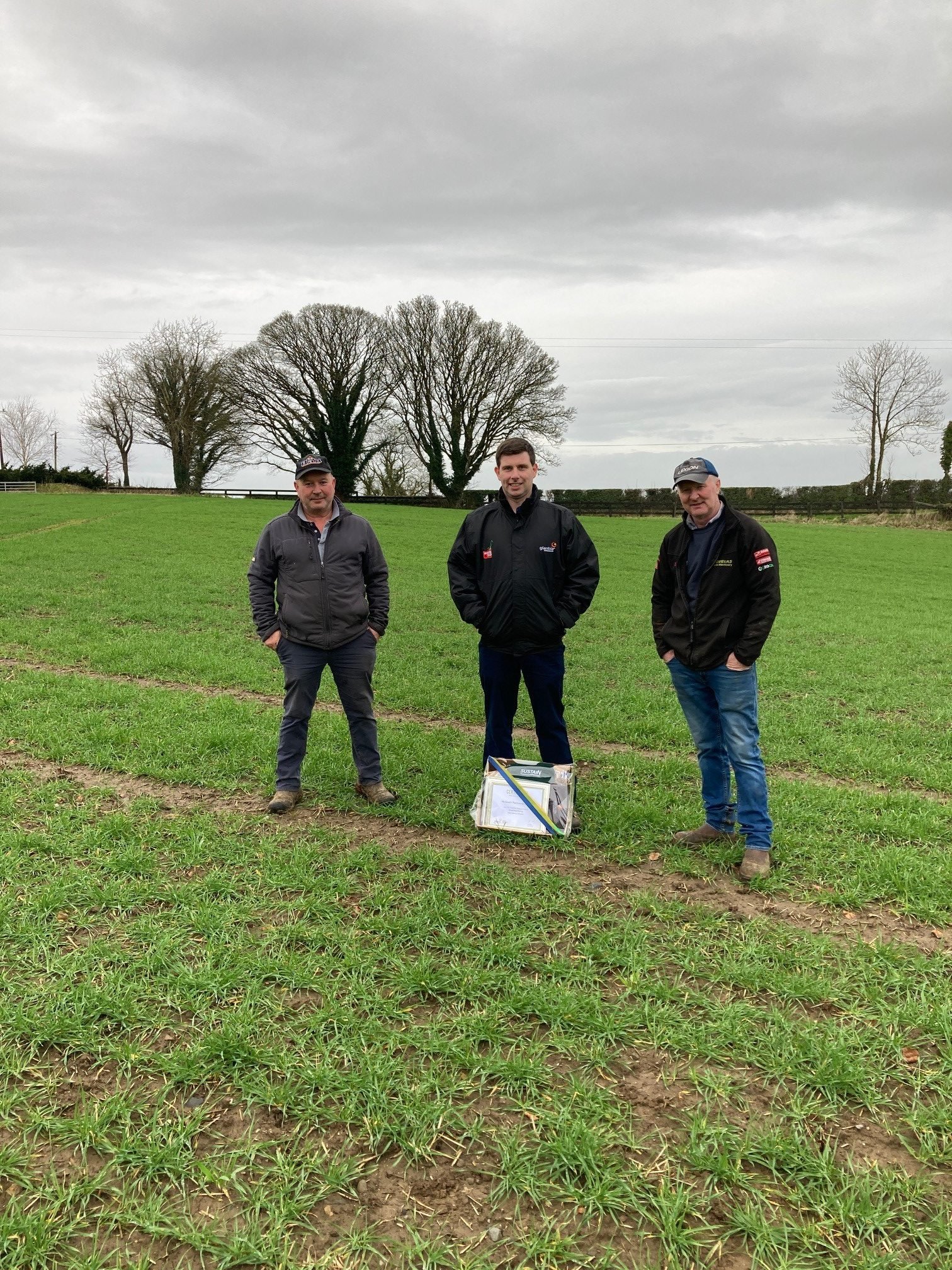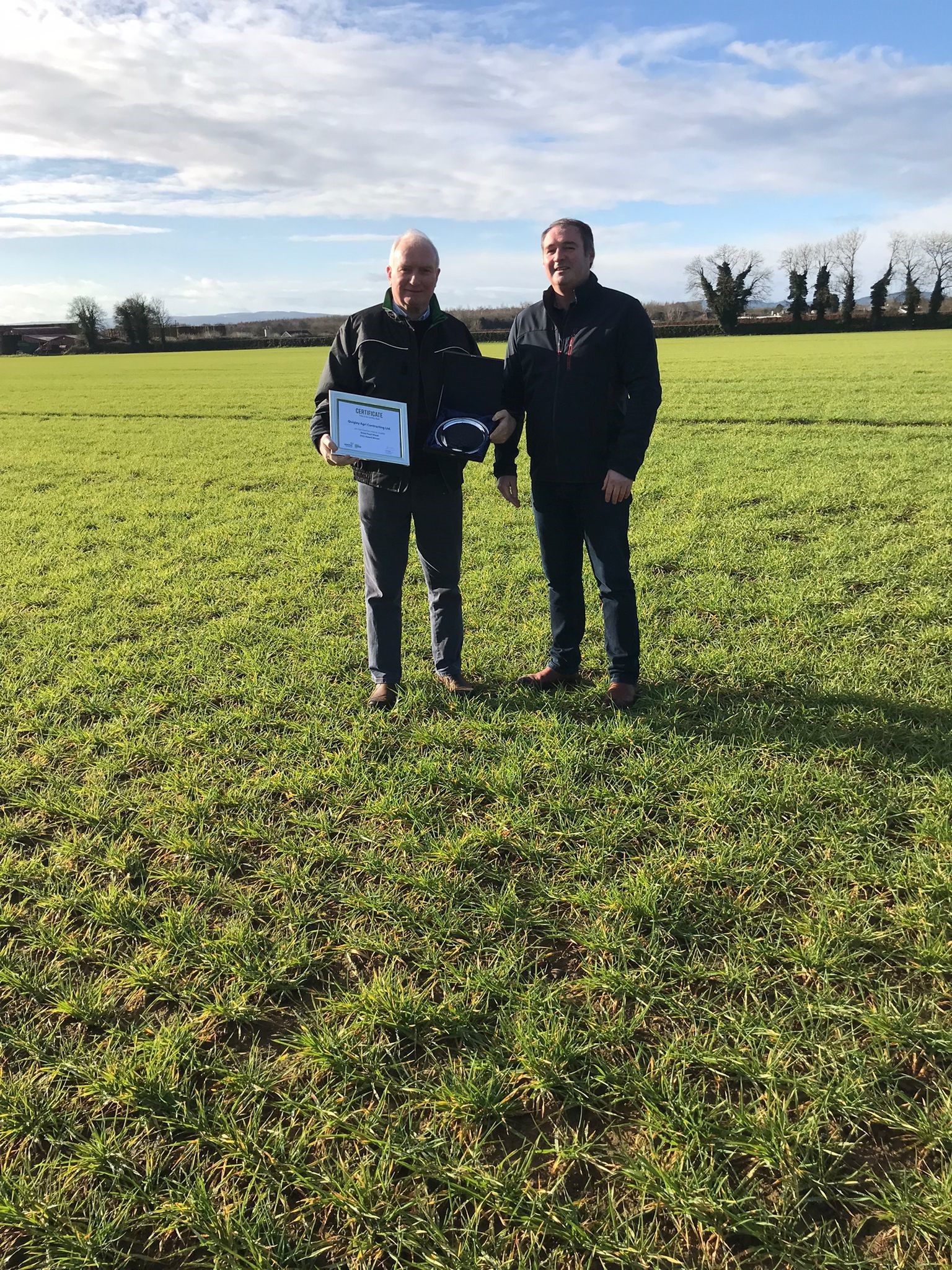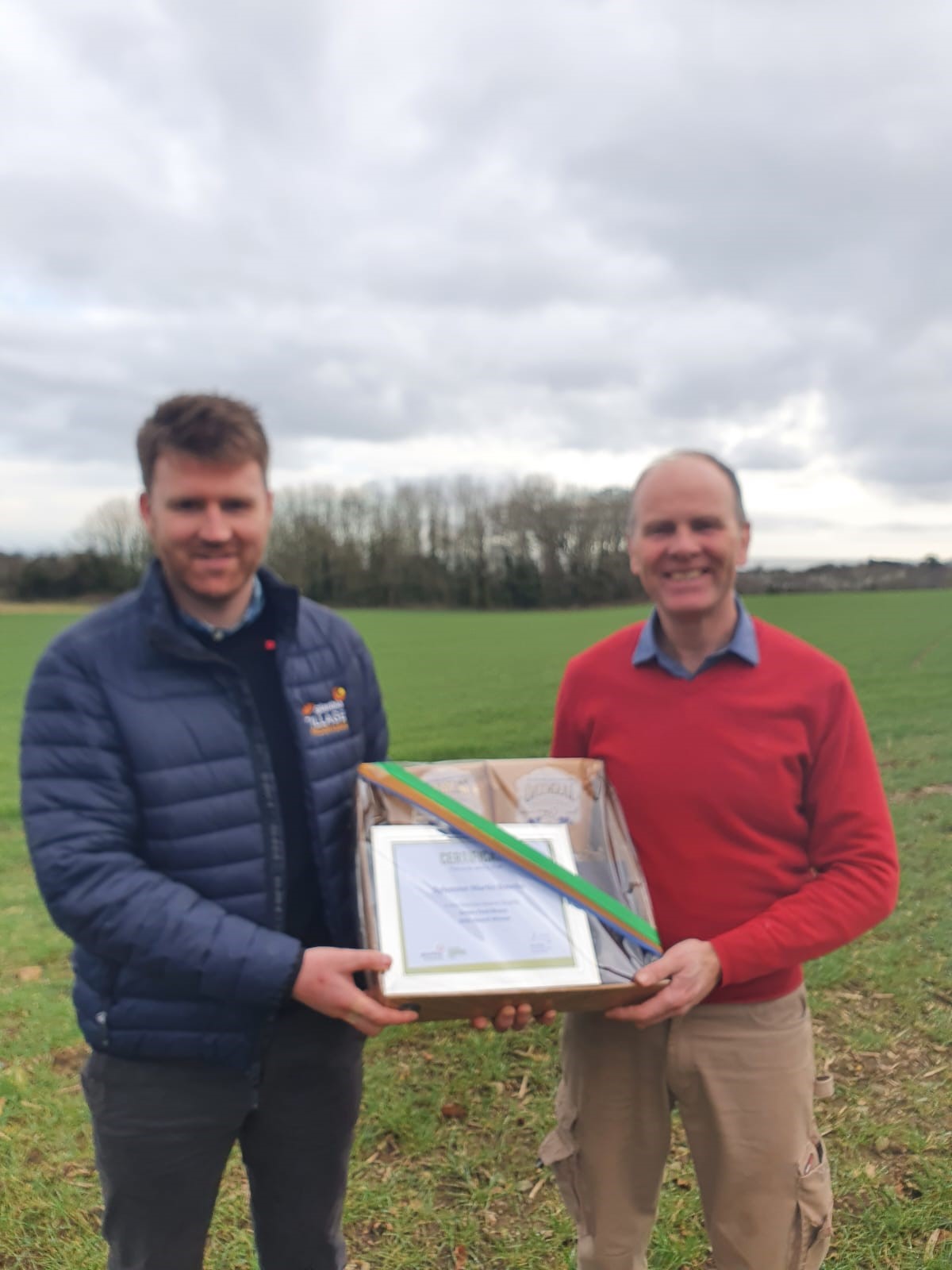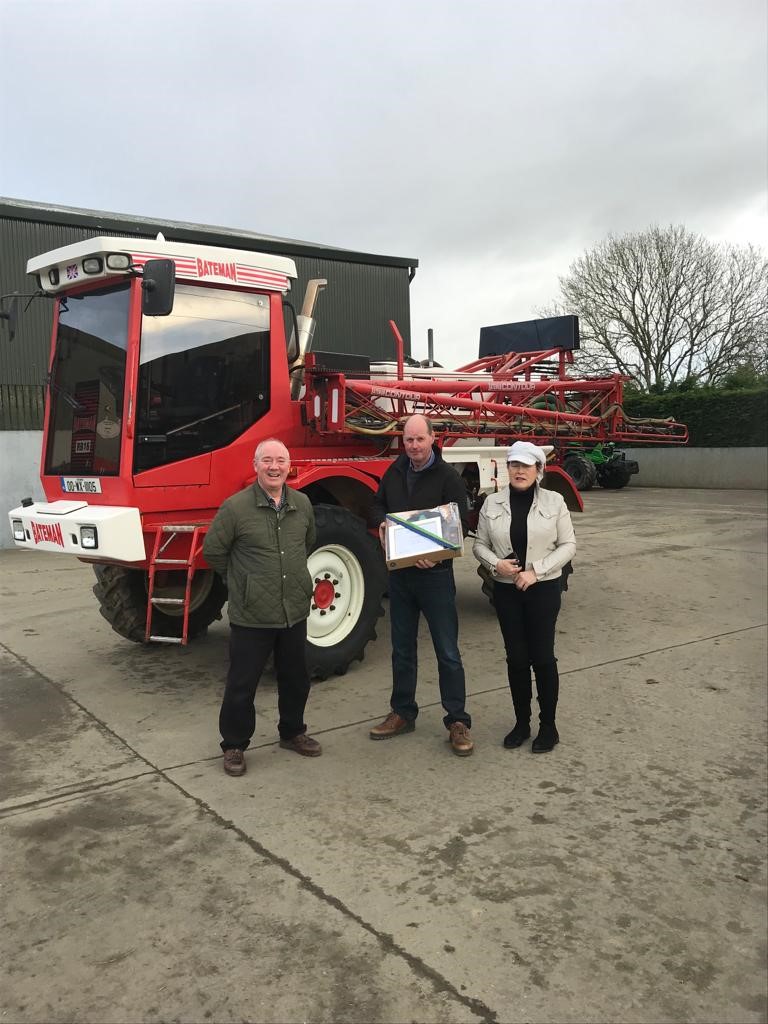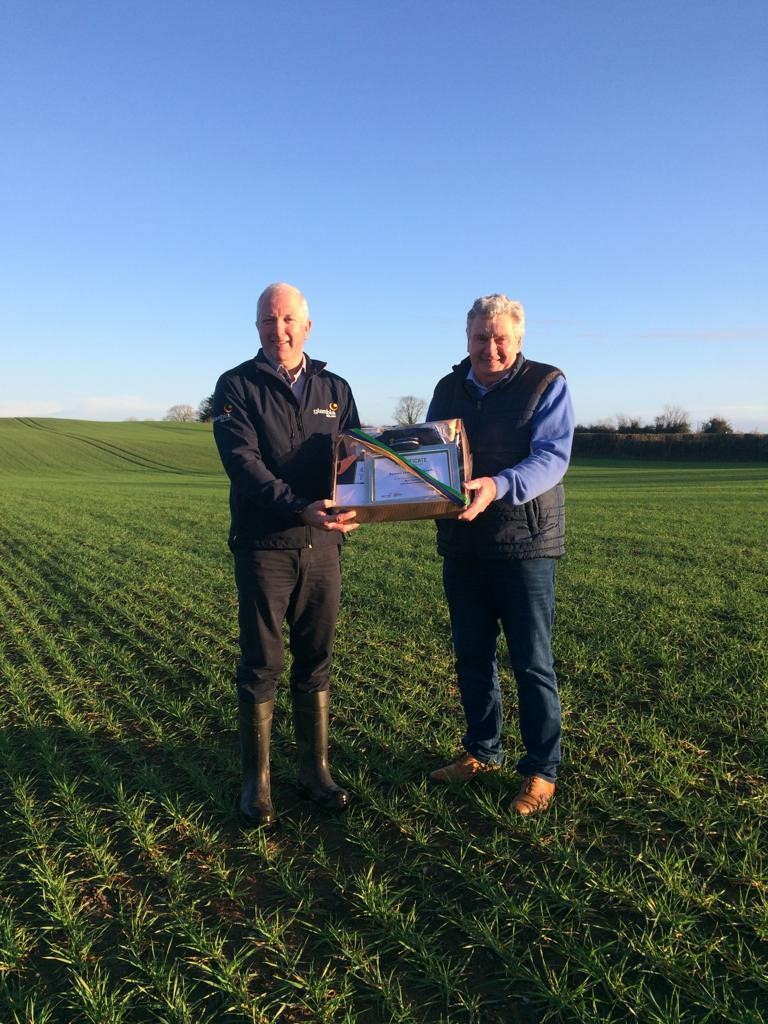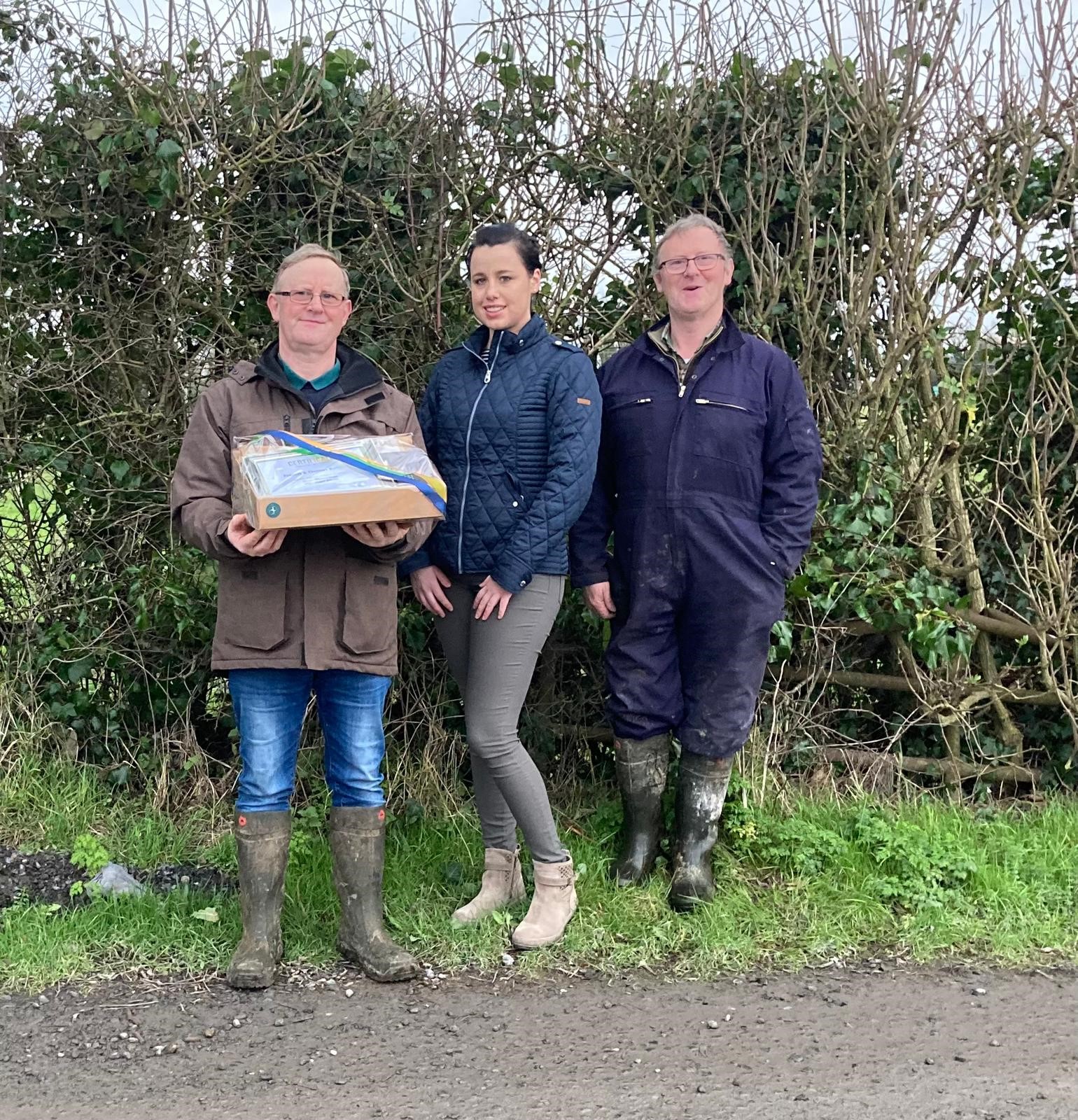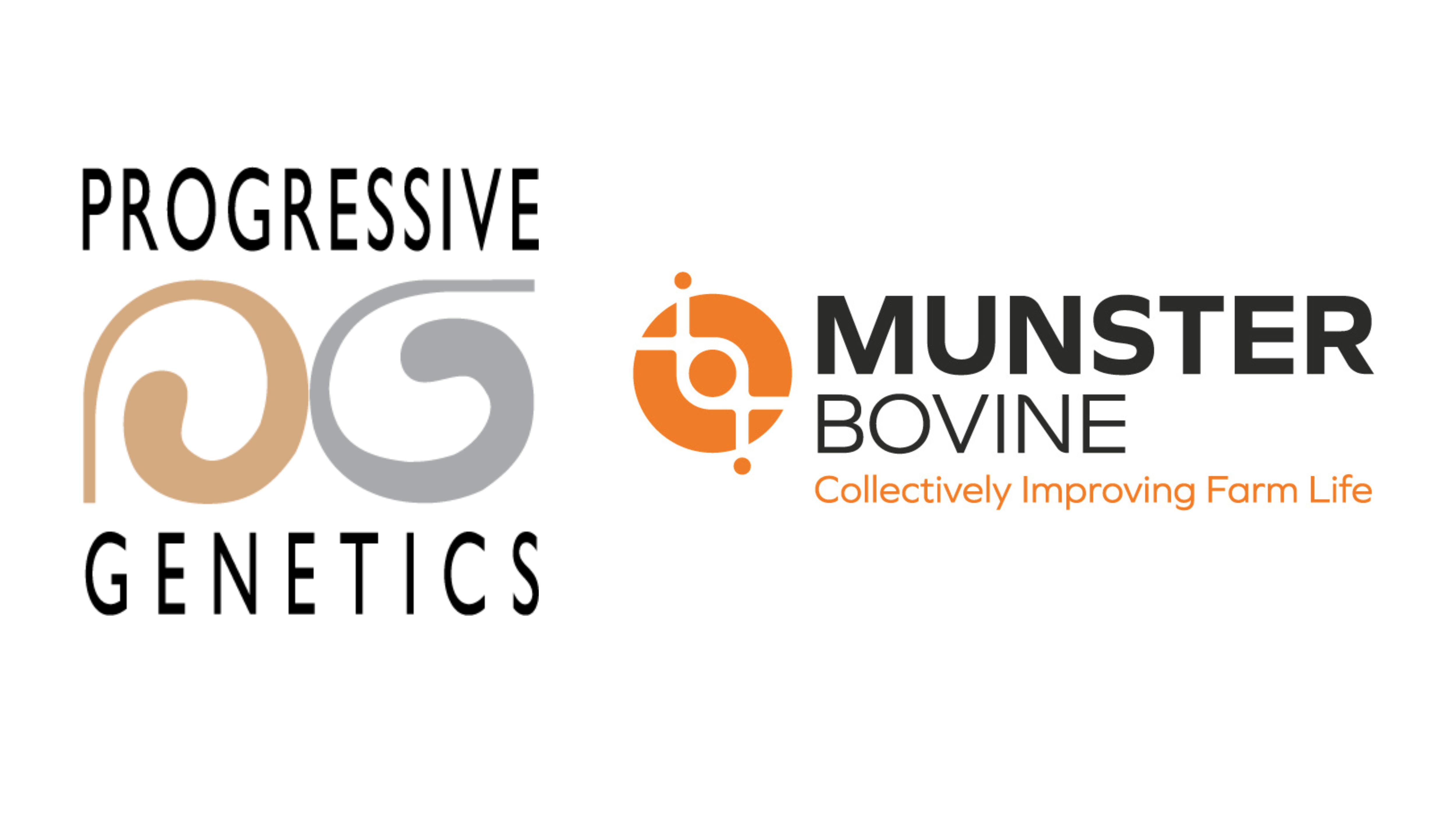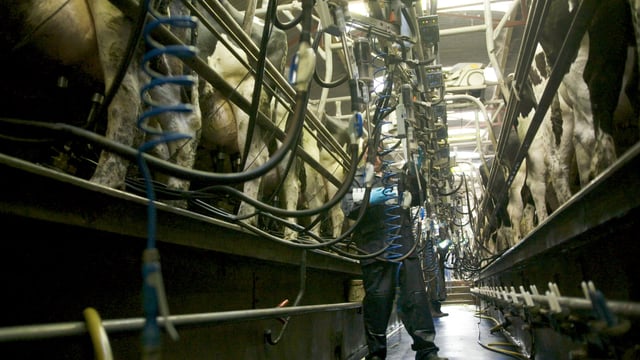Sponsored Article

Sponsored Article
Winners of the 2021 Glanbia Ireland Quality Grain Awards
Sponsored Article

Kildare grain growers Matt and Luke Dempsey were among 12 suppliers honoured for their dedication and attention to detail at the Glanbia Ireland 2021 Grain Supplier of the Year Awards.
The father and son duo operate a tillage and beef enterprise in Celbridge, with around 250ac allocated to cereal crops.
“We are truly delighted to have been selected for the Grain Supplier of the Year Award. We take great pride in delivering top-class crops and constantly strive to innovate and operate sustainable practices on our farm,” said Matt Dempsey, whose Griffenrath Farm Partnership won the Food Grade Oats award with a gluten-free oats crop delivering an average specific weight of 59.3kph at 15.5% moisture across 240t.
“We value the use of break crops in maintaining healthy soil structure on our farm, aiding soil fertility, weed control and overall grain quality," Matt added.
A range of break crops are grown on the farm, including beans, oats and oilseed rape, allowing for the production of seed wheat and gluten-free oats.
“We strongly believe in premium crops as it is important that growers maximise the return from all crops, whilst delivering high quality grains for the end user,” said Matt.
Glanbia Co-op Chairman John Murphy said the calibre of the entrants to the awards is a reflection of the hard work, dedication and professionalism displayed throughout the grain sector.
“We are extremely proud of our top-class portfolio of grains and the high quality is a direct result of the pride that our growers take in their work each and every day," he said.
Bobby farms a combination of owned and rented land at Rathmore near Stradbally in Co. Laois. Crops grown on the farm include winter oilseed rape, winter barley, gluten free oats and spring malting barley, all as part of a five-year rotation.
All crops are established using a plough-based system. Bobby has begun to increase the use of organic manures on the farm in recent years. Weanling dairy heifers are brought onto the farm over winter to graze on catch crops such as rape and kale.
Bobby will be known to many growers as the Chairman on the Irish Grain Growers Group. Attention to detail is a hallmark of Bobby Miller’s farming system and this shines through in the quality and yield of crops produced.
The winning crop had an average specific weight of 70.1kph, 1.4% screenings and 9.7% protein at a moisture of 13.6% across 122t.
Bobby’s Glanbia agronomist is Tim Scott.
Diarmuid farms approximately 140ac of combinable crops adjacent to Castlelyons village in Co. Cork on the banks of the River Bride. Crops grown include winter wheat, winter barley and spring malting barley.
Attention to detail is of paramount importance to Diarmuid and due care is taken throughout the season to ensure the crops are grown to the best possible standard. High soil fertility is a key area Diarmuid focuses on year after year to ensure the consistency of both grain yield and quality. All crops are established using a plough-based system.
Aside from farming, Diarmuid is a passionate machinery enthusiast and also has a very keen interest in the equine industry.
The winning crop averaged a specific weight of 70.4kph, 0.8% screenings and 9.9% protein at a moisture of 14.5% across 183t.
Diarmuid’s Glanbia agronomist is David Quinlan.
Deerpark Farming is operated by John Morrison with his wife Deirdre, who together farm over 200ha of tillage in the Blackwater Valley outside Lismore in Co. Waterford. Their crop rotation incudes winter wheat, winter barley, spring oats, spring feed beans and winter rape.
Oilseed rape and first wheats are sown via a min-till system using a Vaderstad spirit drill while all other crops are drilled after ploughing. The Morrisons have recently installed grain handling and storage facilities with the aid of a TAMS tillage grant, indicating their confidence in the future of the sector.
The award winning crop averaged a specific weight of 57.4kph at 15.4% moisture across a total production of over 200t.
The Morrisons’ Glanbia agronomist is Paul McKevitt.
Ballingale Farms Ltd. is located near Ballycarney, Co Wexford. It is run by Martin and Jamie Whelan who along with their father Jim operate mainly a plough and press-based system as well as some min till.
A wide range of crops are grown on the farm including malting barley, winter and spring wheat, spring beans and fodder beet. Potatoes are also part of the rotation through a land swap with a neighbour. The large area of break crops grown is key to the Whelan’s ability to grow high quality cereals such as seed wheat for Glanbia every year.
The quality of the tillage work such as the pressing of the land is important to them and shows through in the crop establishment and subsequent yields. Organic manure in the form of pig slurry is imported onto the farm to build soil fertility and cover crops are used in the autumn.
Outside of farming the guys are involved with their local GAA club Ferns St. Aidan’s and while playing days are getting limited they try to help with underage teams.
The winning crop had an average specific weight of 78.6kph and 10.8% protein at 18.8% moisture across 163t.
The Whelans’ Glanbia agronomist is Tom Hession.
Doyle Produce Ltd. is operated by Eddie Doyle who farms close to 900ac of crops straddling both Waterford and Kilkenny in the Suir valley near the village of Mooncoin. The total area farmed includes 300ac of potatoes and swedes. Cereals grown include winter and spring barley and winter wheat.
The crop rotation practised on the farm generally consists of a first crop wheat preceded by potatoes and followed by winter barley which in turn is succeeded by a vegetable crop or spring barley. A plough-based system is used to establish the majority of crops on the farm.
Eddie is also a Glanbia milk supplier, running a medium-sized herd from his base at Mooncoin.
The winning crop averaged a specific weight of 77.4kph and 11.1% protein at a moisture of 19.3% across just over 600t.
Eddie’s Glanbia agronomist is James Hickey.
Paul and P.J. farm together with their families at Tara outside Tullamore, Co. Offaly. Crops grown on the farm include winter oilseed rape, winter wheat, winter and spring barley, gluten free oats and fodder beet.
Oilseed rape and fodder beet are key break crops on the farm and usually succeeded by gluten free oats and winter wheat. The majority of grain grown on the farm is dried and stored to be sold post-harvest. All crops are established using minimum tillage cultivation methods, including fodder beet.
Every effort is made to minimise soil compaction and a sub-soiler is usually used in front of the seed drill. The use of organic manures is a consistent feature of the McGraths’ tillage enterprise.
The McGraths’ Glanbia agronomist is Tim Scott.
Father and son partnership, Francis and Michael Quigley farm approximately 250ac of very good tillage land at Kildangan in south Kildare. Francis is married to Marie, who takes a very active role in running of the farm and their sizeable Agri Contracting business.
The main crops grown on the Quigleys’ farm include winter wheat, winter and spring barley and forage maize which is grown for sale to local dairy farmers. They dry and store all their own grain.
The Quigleys also run a very successful Agri contracting business which has been in operation for three generations. The contracting business centres mainly on the sowing of cereal and maize crops and the harvesting of cereals, maize and silage. Away from farming, the Quigleys’ interests including travelling, gardening and sport.
The Quigleys’ Glanbia agronomist is Sean Boland.
Sylvester farms on the outskirts of Arklow in County Wicklow with wife Elizabeth and their three children. The farming operation is mainly tillage but the Bourkes also have a flock of laying hens and supply eggs to local shops and hotels. The tillage enterprise consists of spring beans, oilseed rape, winter barley, winter wheat, spring barley and maize.
Soil type on the farmed land is variable but mainly on the medium side. In recent years Sylvester has been moving away from the plough and is now using “minimum tillage” (min till) as his main method of establishment.
Since changing to min till he has noted a huge saving in time and labour and expects to see improvements in soil structure and crop yields over time. Organic manures such a poultry litter have been in common use on the farm for a number of years and Sylvester can clearly see the benefits of their use.
Outside of farming Sylvester is a very active member of the community and represents the Arklow area on Wicklow County Council. He supports Arklow United soccer club, Arklow Rocks Camogie club as well as the AGB GAA club.
Sylvester’s Glanbia agronomist is Tom Hession.
John farms a combination of owned and rented land, totalling approximately 300ac, at Kilscanlon near Foulksmills in Co. Wexford. All the land is dedicated to beef and tillage farming enterprises. Crops grown on the farm include spring malting barley, winter wheat, fodder beet and spring beans. The value of good break crops in a crop rotation are very evident in both the yield and quality of crops produced on John’s farm.
John is married to Emily and they have two sons, Kevin and Sean.
The award winning crop of Gangway malting barley had an average specific weight of 68.3kph, screenings of 1.5% and protein of 10.3% at a moisture of 18.1% across a total of almost 203t.
John’s Glanbia agronomist is Ed Prendergast.
Eamon farms mainly owned land at separate locations on free draining soils in Milford, Co. Carlow and Goresbridge, Co. Kilkenny. A key element of his crop rotation is the growing of 100ac of fodder beet and 50ac of forage maize each year; all the beet and maize is contracted to local dairy and beef farmers. This provides a platform for growing spring cereal crops, mainly for seed production.
All crops are established using a plough-based system. Cover crops are sown on all land not occupied by beet for the autumn and winter. Away from farming, Eamon’s interests include horse racing and holidaying.
The winning crop was a crop of Gangway spring barley which averaged a specific weight of 70.9kph and screenings of 1.9% at a moisture of 16.8% across 192t.
Eamon’s Glanbia agronomist is Barry Purcell.
Francis and Thomas are based in Athboy, Co.Meath. They run a mixed farming operation from their base in Athboy that includes tillage, livestock and contracting. The tillage rotation includes cereals and break crops such as winter oil seed rape and spring beans. The main cereals grown in the rotation are winter wheat and winter and spring barley. All crops are sown using a plough-based system.
This award-winning crop of oilseed rape was a crop of High Erucic Acid Rape (HEAR) for which Glanbia Ireland has introduced contracts over the last couple of years. The rape is exported to the UK to be used for industrial purposes.
The Bennetts’ Glanbia agronomist is Jayne Smyth.
Sponsored Article


